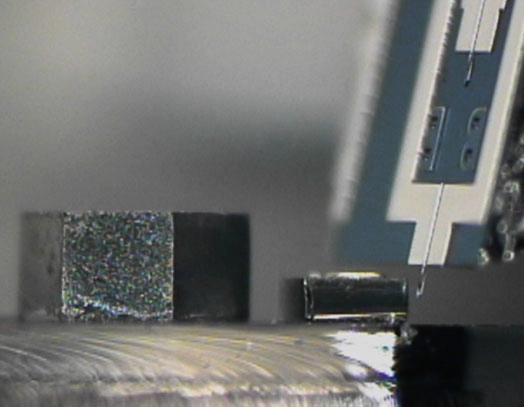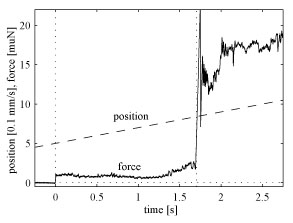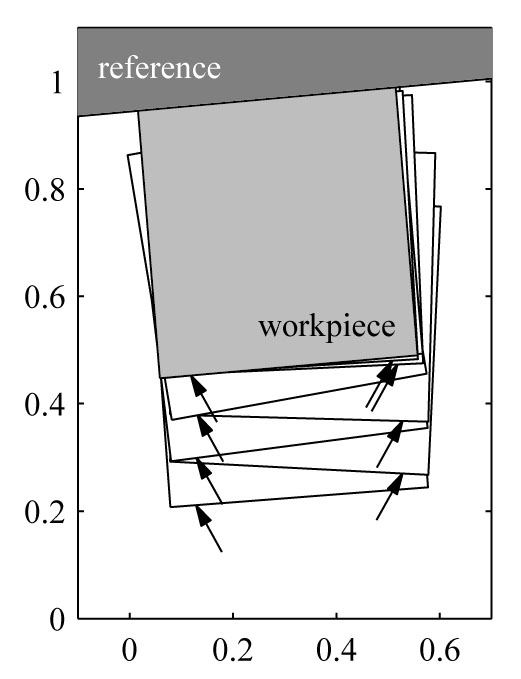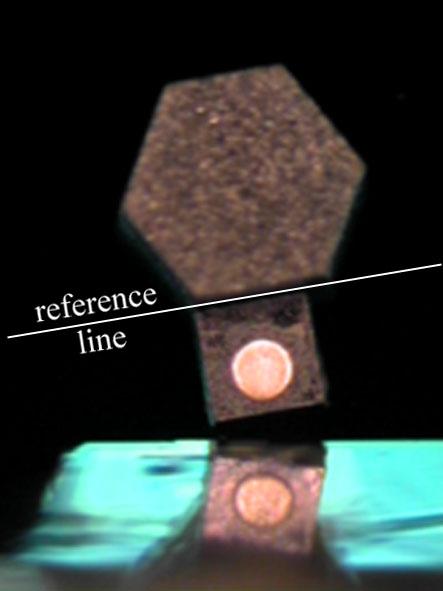
 Motivation
Motivation
Manipulation of microparts requires different strategies than in the macroworld. The human operator or the electronic controller has to be provided with reliable information from the microworld. Video microcopy widely used requires visibility thus severely restricting the flexibility of handling maneu- vers. A different strategy is to use local process information, such as contact forces, to control precise and flexible operations. Different micro- physical effects, such as adhesion, additionally aggravate manipula- tion at the microscale. Methods to avoid or control sticking have to be found in order to perform precise positioning and assembly of microparts.



